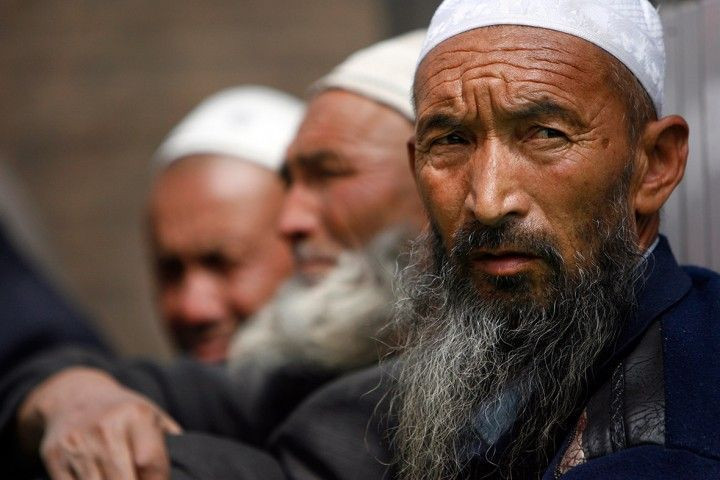Chinese City Bans Beards, Burqas On Buses; Human Rights Groups Outraged

Human rights groups are outraged by the actions of authorities, in a Chinese city within the mainly Muslim Xinjiang region in the country's northwest, who have passed a law prohibiting people with large beards or Islamic attire from using public transport, an Agence France-Presse, or AFP, report said.
Karamay city authorities banned hijabs, niqabs, burqas and clothing with the Islamic star and crescent symbol on local buses, a local newspaper, the Karamay Daily reported. The paper said that “large beards” are also part of the ban, and cited authorities as saying that, “Those who do not cooperate with inspection teams will be handled by police.” The Karamay ban is in force during a sports competition, which ends Aug. 20, the report added.
Rich in resources, the Xinjiang region is closer to central Asia than Beijing, and is home to China's mostly Muslim Uighur minority. In recent times, the region has seen a large increase in clashes between the local population and Chinese security forces, resulting in hundreds of deaths within the last year.
The region's Muslim community blames Beijing for religious persecution, while Chinese authorities have identified members of the minority population as "terrorists" and accused them of conducting several terrorist attacks across the country in the past few months.
Human rights groups said China’s restrictions on Uighurs' religious and cultural practices have increased tensions in the region after China enforced a ban on students and government staff last month from fasting during Ramadan, the Muslim holy month of fasting. Chinese authorities also asked Xinjiang locals to not wear Islamic veils.
The restrictions in Karamay are “a typical discriminatory measure...which add to an increasing confrontation between Uighurs and Beijing,” according to a statement made to AFP by Dilxat Raxit, an exiled World Uyghur Congress spokesman.
Last week, in Xinjiang, at least 100 people, including 59 “terrorists,” were killed in an attack, Chinese state media said on Sunday. The statement came a few days after a government-appointed leader of the country's largest mosque, within one of Xinjiang's oldest cities, was killed after leading morning prayers.
Following a deadly bombing attack in May in Urumqi, Xinjiang's capital city, and a knifing attack at a train station in the city of Kunming in March, Chinese authorities announced a year-long crackdown on terrorism and have arrested hundreds of alleged terrorists and tightened security measures on public transport. Last month, state media reported that Urumqi authorities had banned bus passengers from carrying a range of items, including cigarette lighters and yogurt.
© Copyright IBTimes 2024. All rights reserved.





















